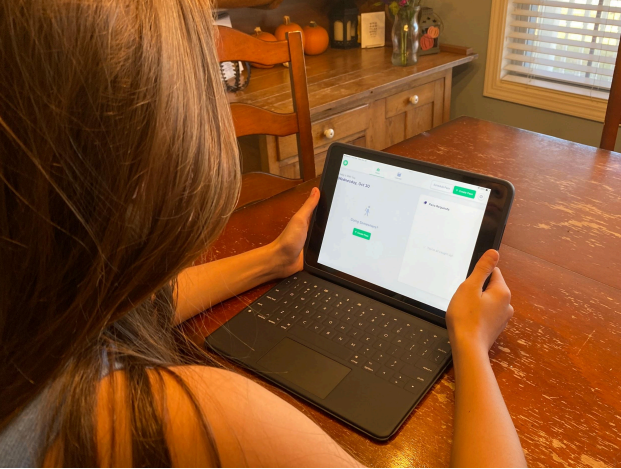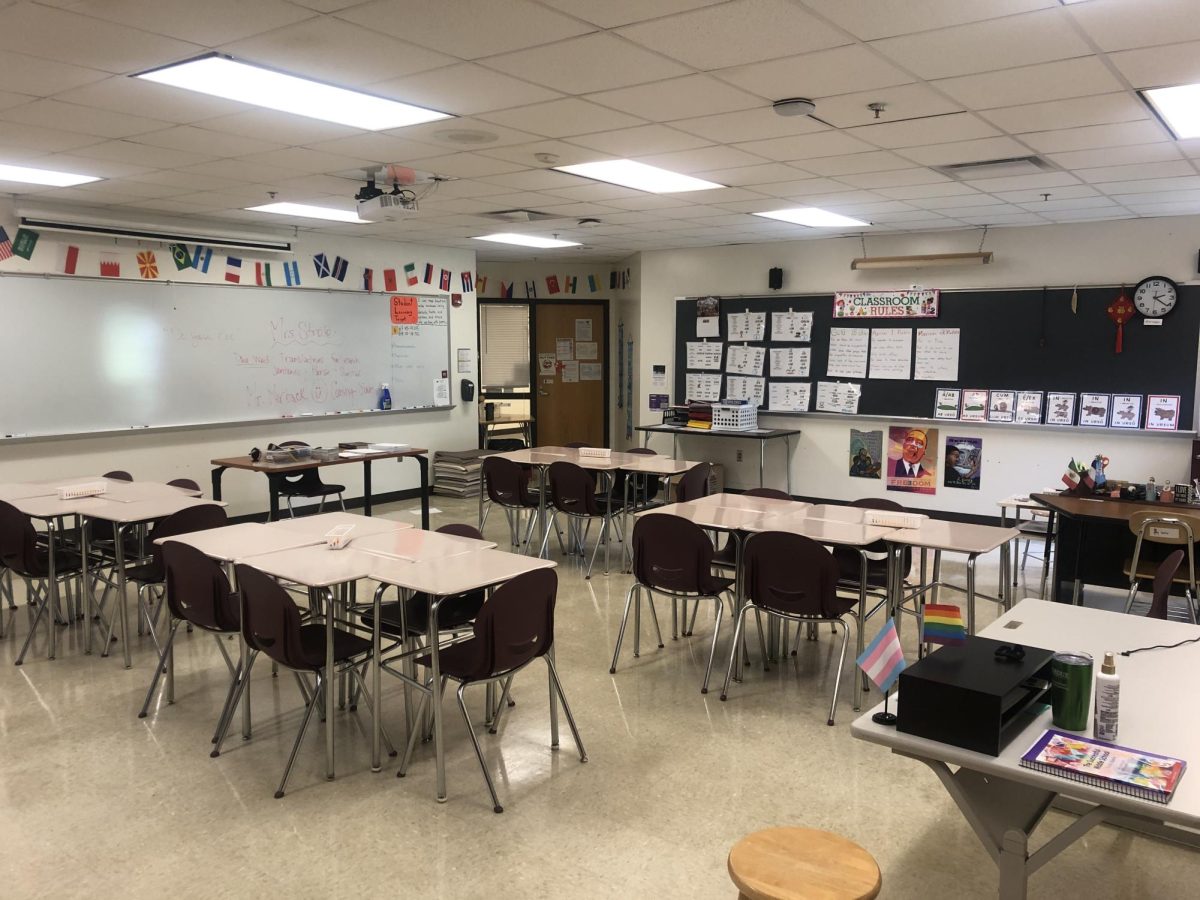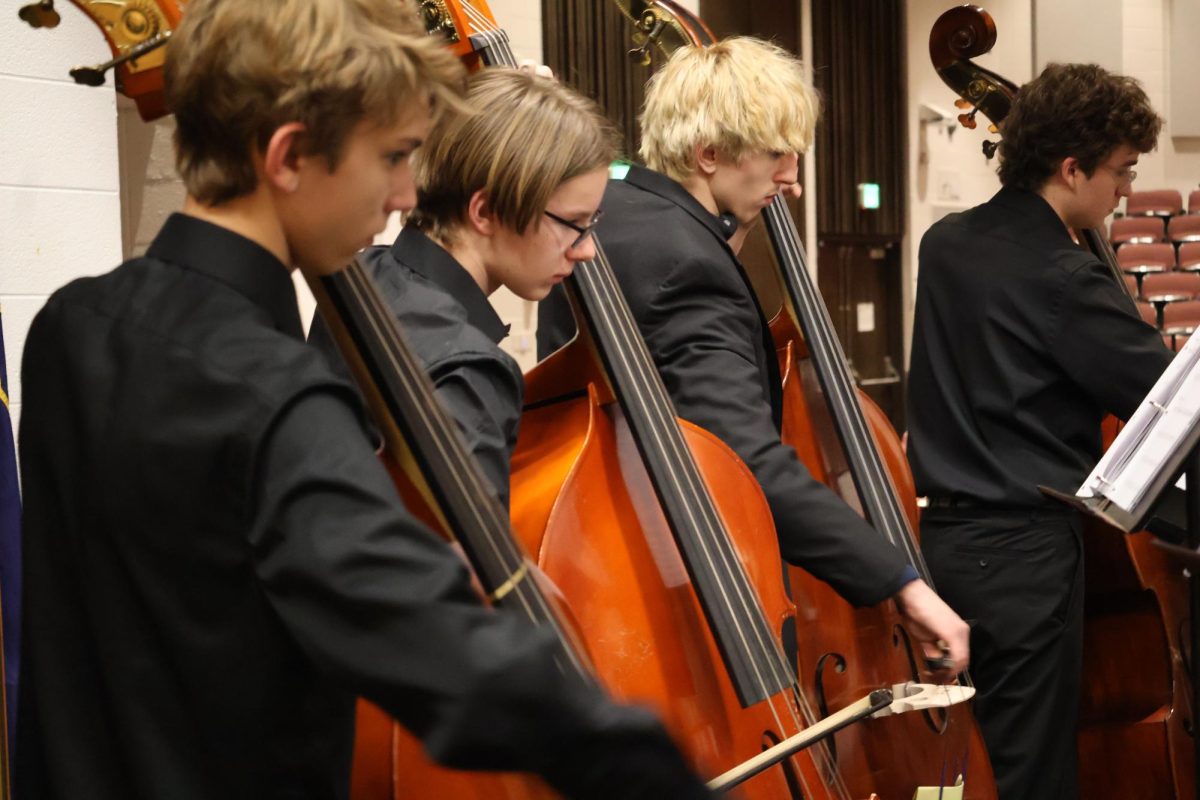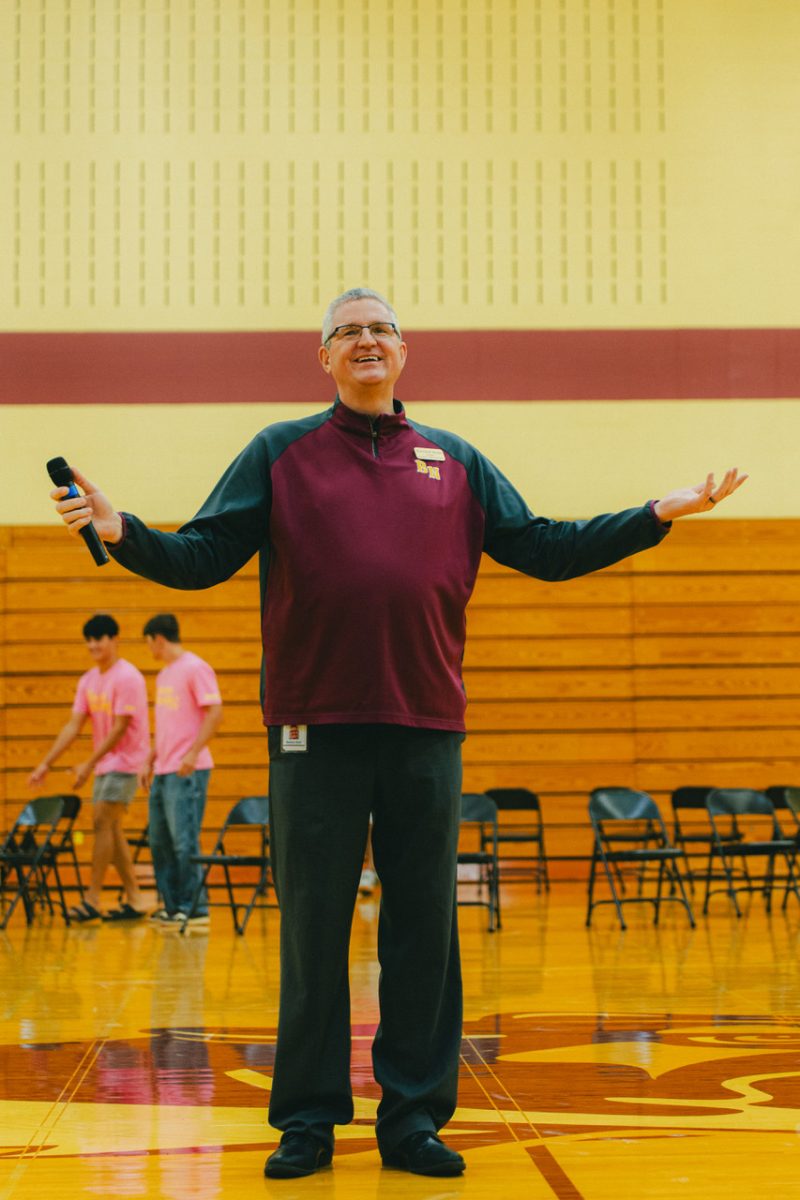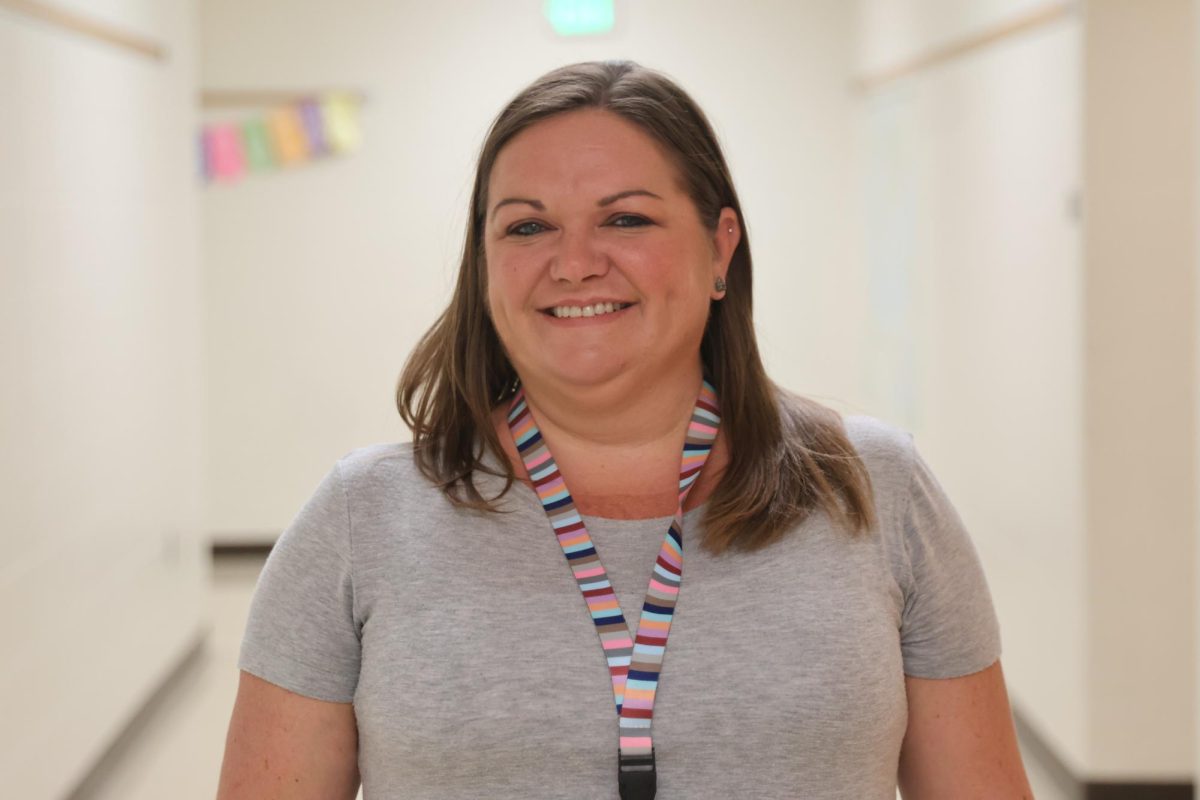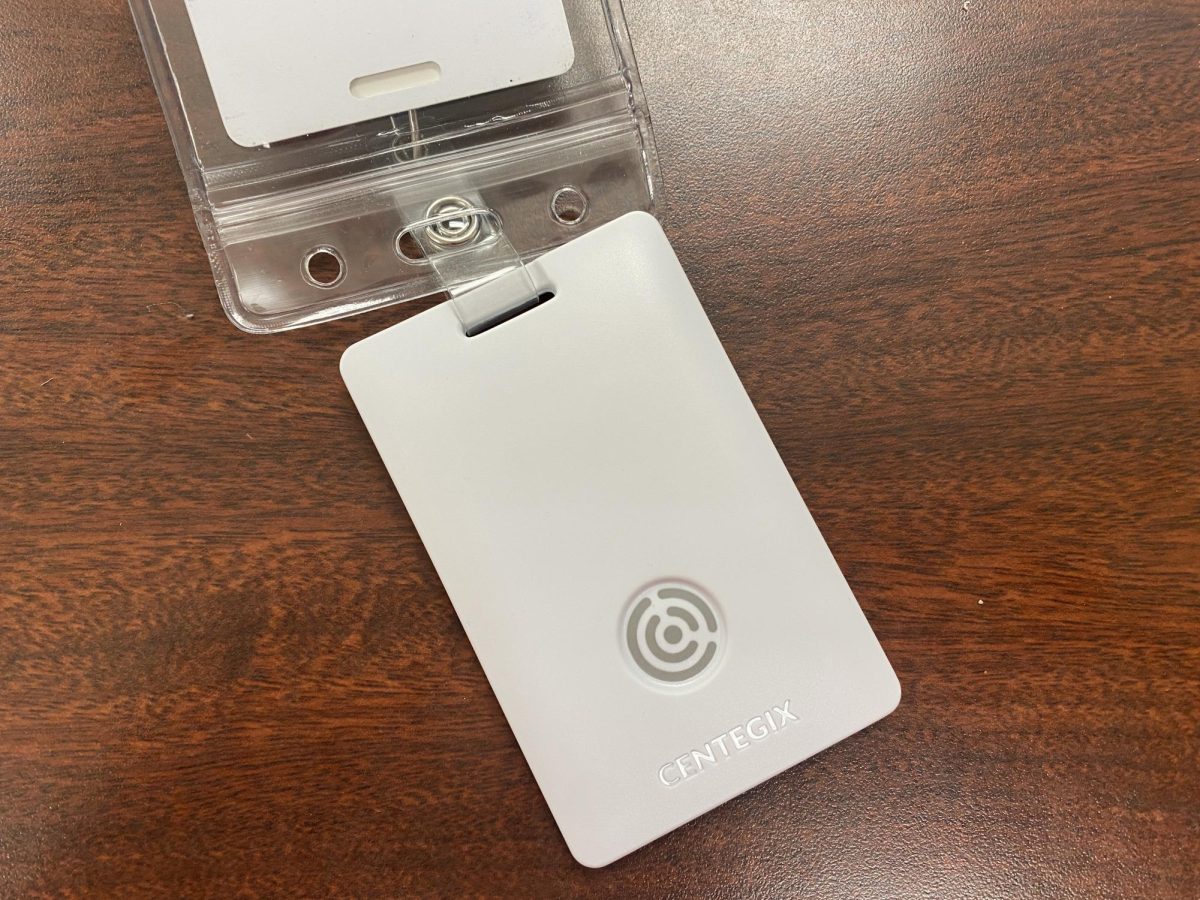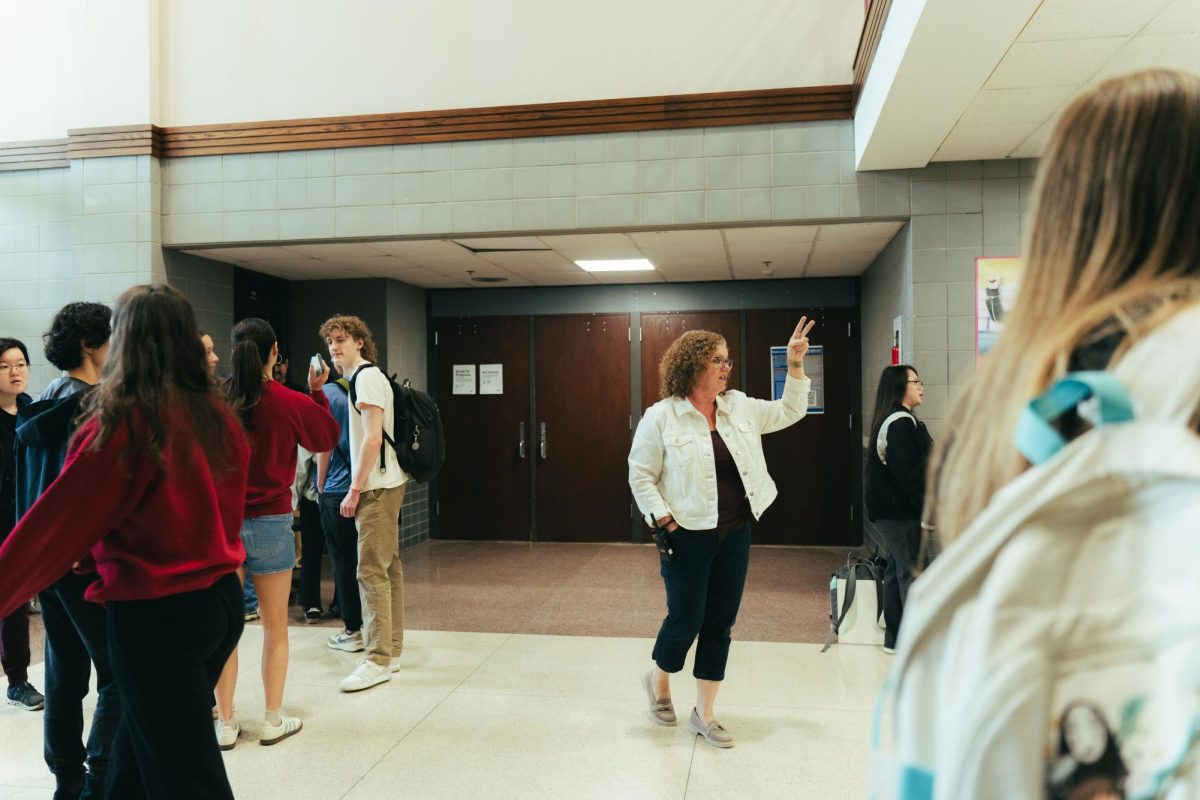It is a well known fact that many students must use the restroom during the school day, go to get a drink of water, or take any other type of trip outside of the classroom. To do this, students use passes.
Currently at Bloomington High School North, the pass system being used involves a student signing their name, departure time, and reason for leaving the room, grabbing a lanyard with their classroom information, and leaving the room for a short period of time. Teachers can also sign a yellow card to let a student visit other rooms, and runners take passes from the counseling or front office to classrooms, dismissing students from class. Typically, this system works.
“I mean, if you’re paying attention and keeping track of what your students are doing, I think it’s fairly easy to know who’s in or out for the most part,” North English teacher Mrs. Angie Cannon shared. “But there are times, depending on what we’re doing in class, I might be moving around the class and working with kids individually. And then it becomes difficult if a lot of kids want a pass, or keeping track of who’s next, since we can only send one kid out at a time.”
Recently, a new way of coordinating passes has been proposed. Starting in November, about twenty teachers will begin implementing SmartPass, an electronic pass system, to their classrooms, piloting the system with the aim to introduce SmartPass to the rest of school in January.
The pass will allow students to log onto an application on their laptops, request permission to leave the classroom, and then set up their own pass to go about their business. They will be able to—with a maximum limit—adjust the time they need and select a specific destination.
“Our district has a district-wide subscription to this service, so there are schools that are using them now,” explained Mr. Scott Bless, the tenth grade assistant principal and one of the administrators working to set up SmartPass. These schools include the MCCSC middle schools, the Academy of Science and Entrepreneurship, and eventually the Bloomington Graduation School.
The hope for this new system is to increase security and track students more effectively. SmartPass has the ability to limit factors such as which bathrooms a student may use, the amount of daily passes they have, and how much time students may take during their break. This will give the school an ideally improved system to manage students and their location.
“It’s another tool that’s available to us,” Bless added. “It can help with school safety, and it provides a lot of data that I think will be really useful. So two things that we really try to incorporate into everything that we do.”
In October, teachers were informed of the transition from manual passes to online passes. “I think overall it was pretty positive because I think it’s pretty user friendly for them,” Bless said. “It doesn’t take any more time, and that was a big concern. Is it going to stop the flow of a class? Is the teacher going to have to walk away from helping students or in the middle of giving a lesson? Have to hit pause and deal with something? It really doesn’t. It’s pretty unobtrusive to the flow of the class.”
“It seems like it’s a good system to me from what I’ve looked at,” said Cannon, “so I’m on board with it. I’ll do whatever they tell me to do.”
Not everyone was thrilled, however, when learning about the new system. “My initial reaction is it seems to be very unnecessary, and it seems to be a very weird system,” senior Ava Tilford shared upon first hearing of the plan to switch pass systems.
Alarmed at the idea of having a limited number of passes, not to mention passes with time limits, Tilford added, “A maximum of five minutes would be very unreasonable considering women’s problems and other problems that they may have. It just seems like a prison system. Why are we told that we have this amount of passes for this amount of time? It is school, and sometimes taking a breather is also very important.
Communicating with your teacher is important if you need those breather moments, but I think that if a student is in the bathroom for ten minutes, it is not the end of the world.” Yet there is no denying the fact that though not all students abuse pass privileges, some do.
“The benefits,” Tilford admitted, “would be students being more engaged in the classroom, and it is good to monitor each student. I think that there’s been a lot of safety issues that have happened within the building, so I agree with keeping more track of the students, because I definitely think we’ve lacked that within the years that I’ve been here.”
North’s security team will be equipped with iPads connected to the system, so when there is a student in the hallway, they will not have to see their pass, but their pass will be on the security team’s devices. “For security, when they see you out, and you’re out, and you’re supposed to be going to the drinking fountain, they see you, and they’re like, ‘Hey, how are you doing?’ not, ‘Hey, I need to see your pass,’ because your pass is right there,” North’s principal Mr. Matthew Stark explained.
“I think my favorite part about that system is it will let students have a little bit more control, which is nice,” Cannon admitted. “And I don’t have to argue with students about whether or not they can go and why as much because the system kind of regulates it for me.”
There will likely be adjustments to the pass system as it is being implemented. The hope is to use the piloting and the eventual usage of the system to reveal any issues that the administration can amend along the way. “If the school counseling office needs to send a pass for somebody, we’re gonna still send the paper passes at this point, until we get more used to it,” Stark clarified. “Our primary thing is going to be the passes out of a class to the restroom or drinking fountain, or something like that. We will try different things out of the course of next semester to try to see how things work. Eventually, I would love there to be no paper passes at all.”
The SmartPass will be a growing point until the school fully transitions into the system, yet most of the teachers and administrators hope for a positive outcome. Until proven otherwise, the students will likely remain skeptical. “We’re teenagers,” said Tilford. “Every time that you try and stop a teenager from doing something, we will still find a way to do it. . . . It’d just get worse, you know?
“If that happens, it happens, and I’m sure some good will come out of it, but I would definitely disagree with this system.”
For those with questions, contact Mr. Stark or Mr. Bless for more information.


